Photo by Aabejon from iStockPhoto
Menstrual cramps and related difficulties, such as irregular periods, heavy bleeding, and premenstrual syndrome (PMS), can significantly impact a woman's quality of life and acupuncture is a wonderful solution for alleviating menstrual discomfort, irregularity and promoting overall reproductive health. I’ve treated numerous women of all ages and types and helped them balance their cycles on an individual basis.
UNDERSTANDING MENSTRUAL CRAMPS AND DIFFICULTIES
Menstrual cramps, also known as dysmenorrhea, occur when the muscles of the uterus contract to shed the uterine lining. These contractions can cause pain in the lower abdomen, lower back, and thighs. In addition to cramps, women may experience other menstrual difficulties, such as:
Irregular Periods: Menstrual cycles that are shorter or longer than the average 28-35 days, or cycles that are unpredictable.
Heavy Bleeding (Menorrhagia): Excessive menstrual bleeding that lasts longer than usual or requires frequent pad or tampon changes.
PMS: Symptoms such as mood swings, bloating, breast tenderness, and headaches that occur before the onset of menstruation.
HOW ACUPUNCTURE HELPS WITH MENSTRUAL CRAMPS AND DIFFICULTIES
Acupuncture works by stimulating specific points on the body to restore balance to the flow of Qi (vital energy) and Blood, harmonize the body’s Yin and Yang, and address the root causes of menstrual issues. Here’s how acupuncture can help:
1. Relieving Menstrual Cramps
The primary benefit of acupuncture for menstrual cramps is pain relief. Acupuncture can:
Reduce Pain Signals: By modulating the nervous system, acupuncture can reduce the perception of pain by releasing endorphins, the body’s natural painkillers.
Relax Uterine Muscles: Acupuncture can help relax the muscles of the uterus, reducing the severity and duration of menstrual cramps.
Improve Blood Flow: Better circulation to the pelvic area helps reduce pain caused by blood stagnation, a common TCM diagnosis for menstrual cramps.
2. Regulating Menstrual Cycles
For women experiencing irregular periods, acupuncture can help restore balance to the menstrual cycle by:
Balancing Hormones: Acupuncture influences the endocrine system, helping to regulate hormones that control the menstrual cycle, such as estrogen and progesterone.
Supporting Ovulation: By enhancing the body’s overall energy balance, acupuncture can support regular ovulation and a more predictable menstrual cycle.
Addressing Underlying Imbalances: TCM views irregular periods as a sign of underlying imbalances, such as Liver Qi stagnation or Kidney deficiency. Acupuncture targets these imbalances to promote a regular cycle.
3. Reducing Heavy Bleeding
Heavy menstrual bleeding can be debilitating and may indicate underlying issues such as hormonal imbalances or uterine fibroids. Acupuncture can help manage heavy bleeding by:
Strengthening the Spleen and Kidneys: In TCM, the Spleen and Kidneys play key roles in controlling Blood. Acupuncture can strengthen these organs to reduce excessive menstrual bleeding.
Balancing Hormones: By regulating hormone levels, acupuncture can help reduce the excessive shedding of the uterine lining that leads to heavy bleeding.
Reducing Inflammation: Acupuncture can decrease inflammation in the reproductive organs, which may contribute to heavy bleeding.
4. Alleviating PMS Symptoms
PMS can cause a wide range of symptoms, including emotional distress, physical discomfort, and digestive issues. Acupuncture offers relief by:
Calming the Mind: Acupuncture can help regulate the body’s stress response, reducing anxiety, irritability, and mood swings commonly associated with PMS.
Easing Physical Discomfort: Acupuncture can alleviate symptoms like bloating, breast tenderness, and headaches by promoting the smooth flow of Qi and Blood.
Supporting Digestive Health: By harmonizing the Spleen and Stomach, acupuncture can help reduce digestive issues like bloating and constipation that often accompany PMS.
5. Supporting Overall Reproductive Health
Beyond managing specific menstrual symptoms, acupuncture promotes overall reproductive health by:
Enhancing Fertility: By regulating the menstrual cycle and promoting balanced hormone levels, acupuncture can support fertility and improve the chances of conception.
Addressing Underlying Conditions: Acupuncture can help manage conditions such as polycystic ovary syndrome (PCOS) and endometriosis, which often contribute to menstrual difficulties.
Promoting Emotional Balance: By harmonizing the body’s energy, acupuncture can help reduce the emotional stress that often exacerbates menstrual symptoms.
Acupuncture offers a natural, holistic approach to managing menstrual cramps and other menstrual difficulties, providing relief from pain, irregular periods, heavy bleeding, and PMS. By addressing the root causes of these issues and promoting overall balance in the body, acupuncture can significantly enhance menstrual health and improve quality of life. If you’re experiencing menstrual difficulties and are seeking a natural method to find relief, consider consulting a qualified acupuncturist to explore how acupuncture can benefit you.









